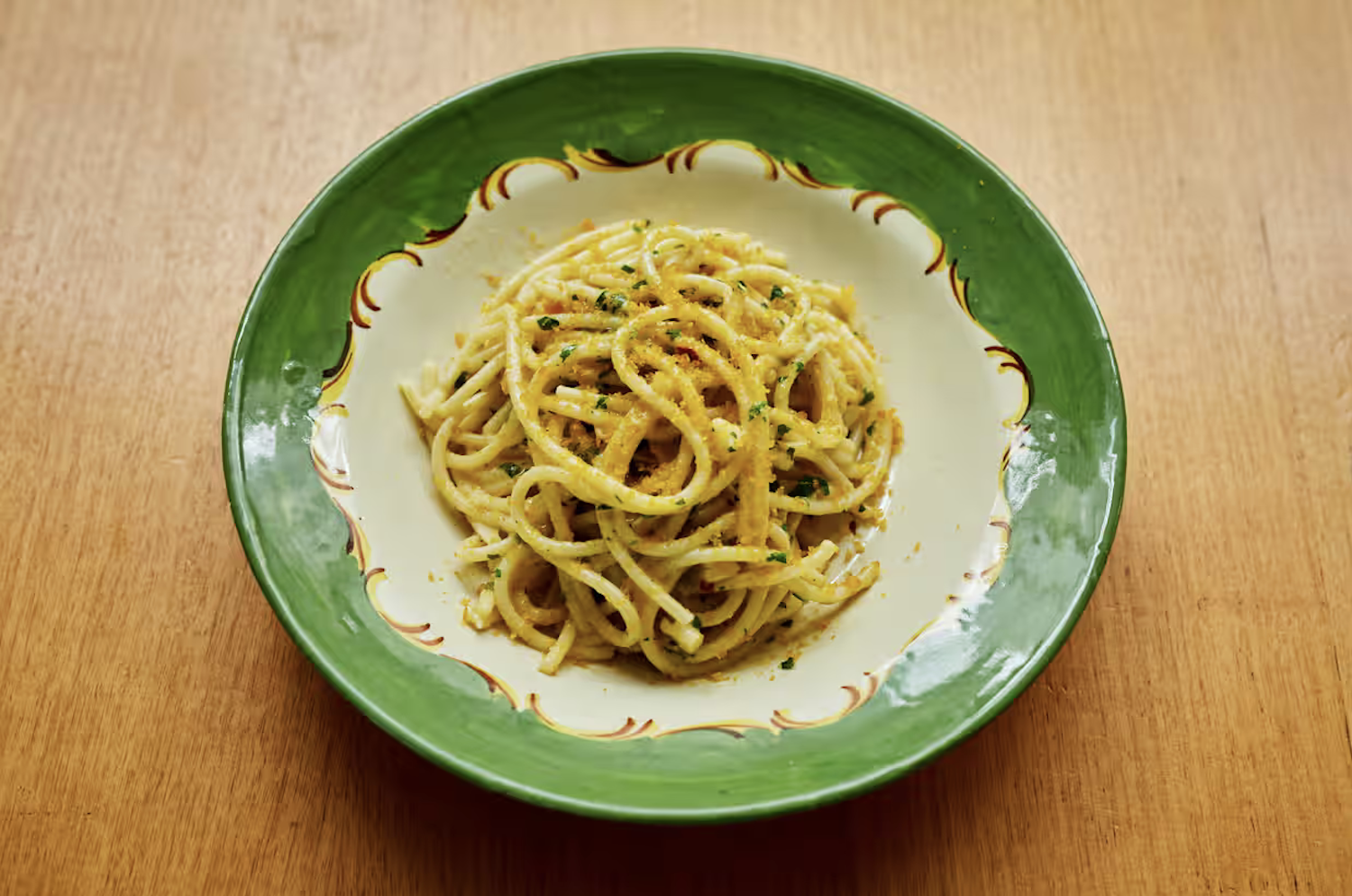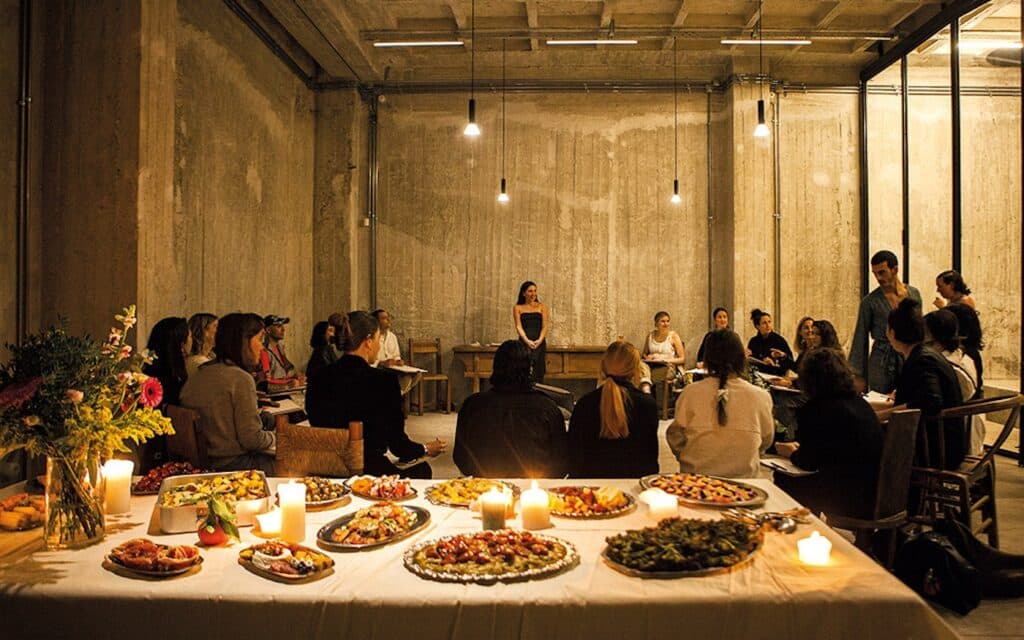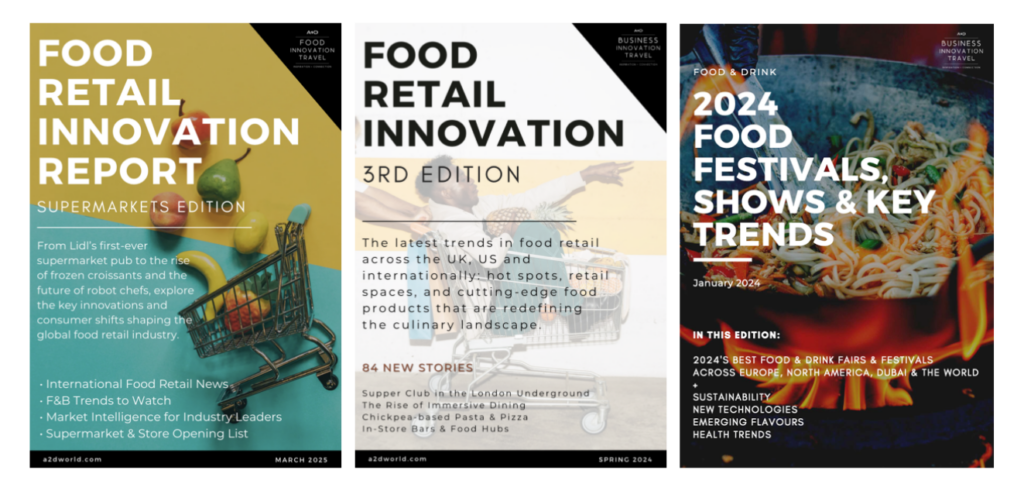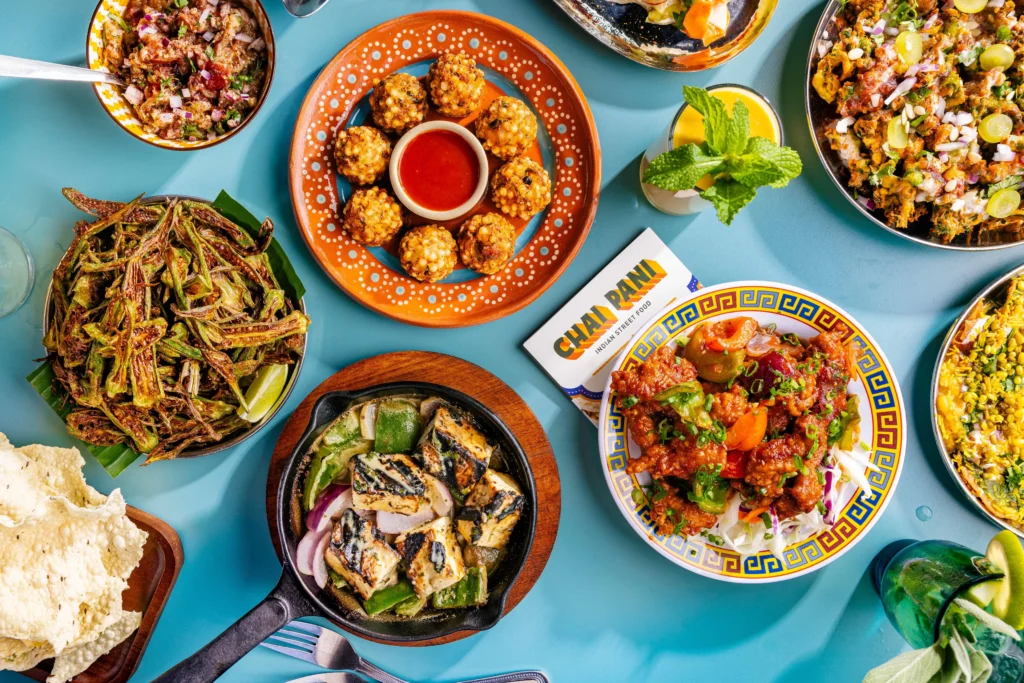As 2024 draws to a close, the culinary world is brimming with vibrant innovations, each a testament to how food connects us to culture, sustainability, and each other. Across Europe and the US, people are reimagining what and how we eat, blending tradition with creativity and turning meals into shared experiences. Here’s a taste of the bits and pieces of change transforming dining into something truly special, collected by our CEO & Founder Stig Egard:
Canteens: A New Era of Dining
Canteens have long been the heart of workplaces, but a new wave of innovation is bringing them into the spotlight as culinary destinations.
Polentina in London exemplifies this shift, transforming an industrial estate into a dining retreat. With dishes like zucchini soup and Sicilian cannoli, it serves not just meals but also a sense of community by sharing leftovers and subsidising staff meals. Meanwhile, Jacquemus HQ in Paris elevates the concept with linen-draped tables and creative offerings like açai bowls and mushroom burgers, making it a sought-after space for both employees and the public.
In Zürich, Roots Kitchen champions vegan cuisine, with dishes like tofu in creamy spinach sauce served in a sleek, modernist setting. And in Berlin, Chipperfield Kantine, known for its ever-changing menu, has become a cornerstone of the city’s vibrant culinary culture. These canteens blur the line between corporate dining and public restaurants, embracing sustainability, affordability, and connection in equal measure.
Rooftop Bars: Elevated Experiences and Natural Wines
Rooftop bars are redefining dining with panoramic views and a commitment to sustainability. In Copenhagen, ØsterGro, an urban rooftop farm, has become a beacon of innovation. It offers a unique combination of urban agriculture and culinary creativity, where visitors can sip natural wines and savour seasonal focaccia made with rooftop-grown tomatoes.
The bar embraces sustainability at its core, repurposing ingredients like fennel stalks into kombucha and showcasing wines graded by their level of “hippieness” — organic, biodynamic, and Demeter-certified. As the sun sets over Copenhagen, guests enjoy a sensory journey that connects them to the earth, sky, and flavours of the season.
And in a recent FIT article, we covered Ember Rooftop in Berlin, offering plant-based dishes focused on sustainability – with the views to match.
Gen Z and the Non-Alcoholic Beverage Boom
Gen Z is reshaping global drinking culture with a focus on health, mindfulness, and sustainability. The popularity of non-alcoholic drinks is surging, with consumption growing by 29% in the US alone in 2023. This generation sees excessive drinking as outdated and is turning to alternatives that offer both flavour and function.
Brands are responding with sophisticated options like CBD-infused beverages and adaptogenic sodas. These drinks aren’t just replacing alcohol but are also outcompeting traditional soft drinks. From kombucha to artisanal mocktails, the industry is buzzing with innovation, making sober curiosity a defining characteristic of modern beverage culture. For Gen Z, the focus isn’t just on what’s in the glass—it’s about the experience, the conversation, and the values behind every sip.
Dosa: A Global Culinary Revolution
The dosa, a South Indian staple, is taking its place on the global stage thanks to entrepreneurs like Nash Patel and Leda Scheintaub. Their venture, Dosa Kitchen, has transformed this traditional crepe into a versatile food accessible to all. By introducing premade dosa batter in New England, they are turning dosa into a household name, marketed as gluten-free, vegan, and preservative-free.
Beyond its health credentials, the dosa’s adaptability is winning hearts. Classic accompaniments like sambar and chutneys sit alongside modern interpretations such as cheddar-stuffed dosa and even “dosa dogs.” This fusion of tradition and creativity is helping break stereotypes about Indian cuisine, making it a universal favourite that thrives on both authenticity and innovation.
Harissa: Tunisia’s Fiery Ambassador
Few ingredients capture the essence of a culture as powerfully as harissa does for Tunisia. Added to UNESCO’s intangible cultural heritage list in 2022, this iconic chilli paste is a staple on Tunisian tables. Whether it’s the smoky harissa of Djerba or the garlic-infused h’rousse of Kairouan, every region has its own twist, showcasing the diversity within a single tradition.
Producers like Lamiri Harissa and Les Moulins Mahjoub are spreading its fiery flavours to international markets, while the annual Harissa Festival in Nabeul celebrates its cultural significance. Harissa isn’t just a condiment—it’s a story of heritage, resilience, and the enduring appeal of bold, vibrant flavours.
Douzens: The Village That Became a Wine Haven
In the heart of Corbières, France, lies the tiny village of Douzens, home to a thriving community of organic winemakers. Despite its small size, this village has become a hub for innovation in wine production. Producers like Domaine Py and Domaine Régazel are pioneering sustainable practices, collaborating to overcome challenges such as drought and undervaluation in the market.
The wines of Douzens are as diverse as the village itself, ranging from no-sulphur bottles to ancient field blends. Yet, what sets Douzens apart is its spirit of collaboration. Winemakers share resources and ideas, proving that even in the face of adversity, community can elevate quality and creativity.
Falafel: Europe’s Street Food Star
Falafel, the humble chickpea fritter, has grown from its Middle Eastern roots into a global phenomenon. In Paris, L’As du Fallafel has become a pilgrimage site for food lovers, offering crispy falafel sandwiches packed with tahini, pickles, and hummus. Its simple yet bold flavours have earned a loyal following, and it remains a cornerstone of Le Marais’ vibrant food scene.
London’s falafel scene is equally dynamic, with spots like Beit El Zaytoun and Mr. Falafel offering unique interpretations of this beloved dish. Whether eaten standing on a bustling street corner or savoured in a cosy café, falafel captures the spirit of accessible, flavourful dining.
The Intersection of Connection, Sustainability and Flavour
As we bid farewell to 2024, these bits and pieces of culinary innovation remind us of the power of food to connect people and create community. Across the globe, these food culture innovations reflect a broader shift toward sustainability and community. Rooftop farms like ØsterGro, canteens embracing zero-waste practices, and Gen Z’s demand for mindful consumption are reshaping not just what we eat, but how we think about food. These trends celebrate the connection between people, places, and plates, inviting us to explore, savour, and innovate with every bite.
The future of food is here, and it’s as delicious as it is diverse. Book a Food Innovation Travel program with us and discover a new way of travelling that lets you connect, grow and innovate.
How Food innovation travel Works
Every Food Innovation Travel program combines the best of our expertise in travel, business and entertainment.
BUSINESS
Site Visits
Meetings
Networking
Brainstorming
TRAVEL
Flights
Hotels
Transfers
Private Charter
ENTERTAINMENT
Restaurants
Activities
Concerts
Events









